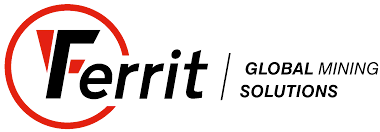
With the rising focus on Environmental, Social and Governance (ESG) policies, Ferrit has put five-year plan in action that will reduce their reliance on companies that emit greenhouse gases.
Sustainability and decarbonisation are goals that all mining companies are striving for. Together with international targets to achieve lower carbon emissions and pursue greener mining techniques, the entire ecosystem of mining is working towards creating an industry that takes its Environmental, Social and Governance (ESG) credentials seriously.
Companies that supply goods and services to big mine operators are doing their bit. They are also increasing their adherence to ESG principles, so they are more attractive as partners.
Ferrit, as a manufacturer of mining transport systems with its own research and development department, is also increasing its investment in designing equipment that helps client sites to reduce their carbon footprint.
More specifically, they are researching into producing more efficient electrical storage solutions that will lower a mine operator’s reliance on hydrocarbon fuels. They are also aiming to reduce emissions of pollutants, including unburned hydrocarbons, carbon monoxide, nitrogen and particulate matter from their diesel vehicles equipment.
Changing focus
The company has been lowering its reliance on customers that produce coal. Thermal coal customers accounted for 50% of revenues in 2019, down to 24% in 2020, 23% in 2021, and is targeting this sector to be much lower within five years. Coking coal customers were at 40% in 2019, rising to 69% in 2020 and back down to 49% last year; their aim is to reduce this number further. However, their plans for the future are to increase their customers in ore mining. Revenues from this sector were 10% in 2019, down to 7% in 2020, with a huge jump to 28% in 2021. And they are focusing on increasing this customer base.
Another service they are increasingly offering to current and new clients is to help optimize the mining transport systems in their mines to reduce operational and energy costs. Most companies realise that capital investments are required to achieve significant decarbonisation with the adoption of renewables, electrification and operational efficiency. Ferrit has the skills and experience to guide mining companies that want to reduce their impact on the environment by switching to more eco-friendly equipment.
Battery-driven mining equipment can replace diesel engines with electric engines where possible, and this can help companies greatly reduce the amounts of greenhouse gases (GHG) produced by their mining operations. Ferrit is designing next-generation equipment that will be more durable and last longer, reducing frequent machinery breakdown and replacement costs.
Recycling
Improved durability can also reduce the environmental costs of damaged equipment — such as rubber or plastic shed as a piece of equipment breaks down. Something as simple as changing tyres on vehicles to ones that provide better longevity and higher return on investment (ROI) in rock-strewn environments can cut down on equipment costs.
Autonomous mining equipment works via wireless networks and electronic tracking using a combination of Radio Frequency Identification (RFID) chips and the Global Positioning System (GPS). It involves minimal human intervention and helps safer mining and transportation of ores and other materials to the surface.
Ferrit is continuing to invest heavily in its range of remote-controlled and autonomous vehicles. The company has recently implemented an autonomous system in its locomotives and has delivered these machines to several clients in late 2021.
It is going to follow this achievement by further developing a system for wheeled loaders and other rolling stock, as Ferrit believes that a majority of mining equipment in the future is going to be automated. The health and safety benefits of using autonomous systems is clear, as it will reduce the need to have fragile humans in the most hostile areas of a mine.
Health & safety
A direct benefit of requiring fewer, or no, humans within a mine creates the possibility of a much more efficient and sustainable mining operation. Ferrit’s autonomous vehicle systems are designed to be operated from the surface, so ventilation and heating/cooling tolerances only need to consider the requirements for the equipment to operate. By lowering the possibilities of physical and mental injury to the workforce, they will be helping companies towards meeting their ESG requirements.
Ferrit’s central control systems for operating vehicles allow operators to monitor a vehicle’s performance and take control in case of breakdown, blockage, or other situations.
The repair and rescue processes can also be automated, by using suitably designed machines to act as recovery vehicles. Not having to be protective of a human presence, fire control measures, such as injecting abundant cheap inert gases, such as N2 and CO2, or foams to extinguish fires can be installed.
Ferrit experts analyse the unique transport equipment requirements and operational processes of a mine, ahead of providing a client with a custom-designed solution. Their professional services team will help partner and support clients through planning and deployment of the equipment to training personnel to use it.
Further information:
Please visit https://www.ferrit.cz/en


